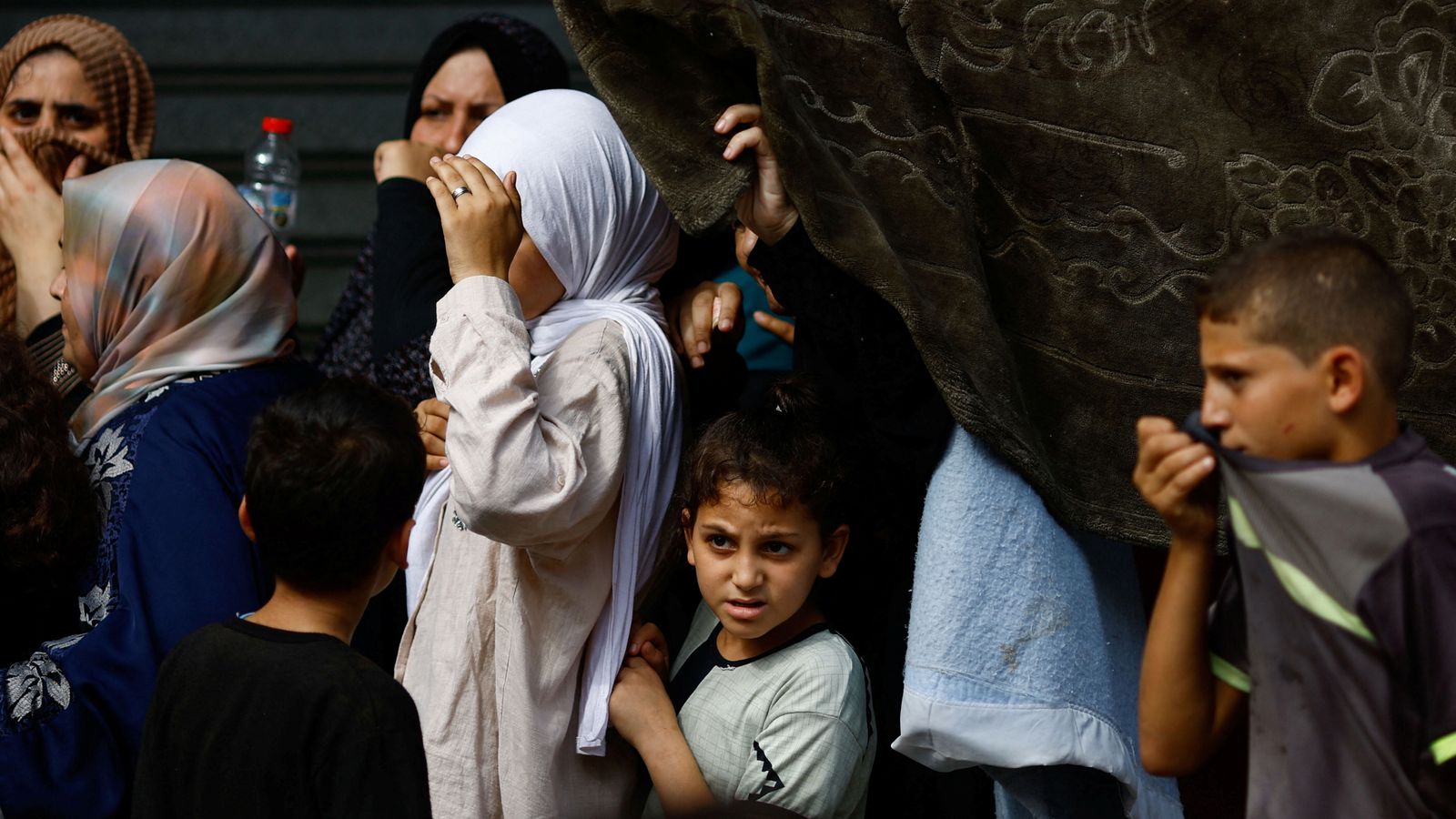The average person in Gaza is living on two pieces of bread per day – and the territory is a “scene of death and destruction”, the UN has said.
The UN’s Palestinian refugee agency, known as UNRWA, has painted a grim picture of the humanitarian situation in Gaza, which has been besieged and bombed by Israel in response to the attacks by Hamas, the militant group that controls the strip.
Thomas White, the agency’s director, said the average Gazan is living on two pieces of Arabic bread made from flour from UN stockpiles.
Follow live: Hamas radio says missile fired at Gaza house of its leader
Please use Chrome browser for a more accessible video player
UNRWA is supporting about 89 bakeries across Gaza, aiming to get bread to 1.7 million people.
But, he added in a video briefing from Gaza, “now people are beyond looking for bread. It’s looking for water”.
He said he had travelled “the length and breadth of Gaza in the last few weeks” and described the place as a “scene of death and destruction”.
An alarming escalation in the Israel-Hamas conflict – what are the implications? | Sean Bell
Hezbollah’s leader stops short of declaring all-out war against Israel, for now
Hamas gunmen killed Israeli grandmother and posted video of body on her own Facebook page
He said no place is safe, and people fear for their lives.
Mr White pointed to other major problems – such as sewage, which is not being treated and instead is being pumped into the sea, he said.
“When you speak to municipal workers, the reality is once their fuel runs out, that sewage will flow in the streets,” he added.
Read more:
Briton tells of ‘chaos’ in leaving Gaza
What videos and satellite images tell us
According to another UN official, only one of three water supply lines from Israel is operational.
“Many people are relying on brackish or saline groundwater, if at all,” said Lynn Hastings, UN deputy Mideast coordinator.
Please use Chrome browser for a more accessible video player
Israel has continued to lay siege to the Hamas-run territory after the militant group launched a brutal attack on Israel on 7 October.
Israeli authorities say the attack left more than 1,400 dead and more than 230 kidnapped.
Israeli Prime Minister Benjamin Netanyahu has pushed back against growing pressure for a humanitarian pause to protect civilians and get more aid into Gaza.
He said on Friday that no temporary ceasefire can be accepted until all hostages are released.
Israel says it is not targeting civilians, but says Hamas militants hide among the population.
Negotiations are still under way between Israel, Egypt, the United States and the United Nations on allowing fuel to enter Gaza, said another UN official, humanitarian chief Martin Griffiths.
Some civilians – including UK citizens – have been allowed to depart the besieged territory, after weeks of uncertainty about whether or not people would make it through the Rafah crossing.









